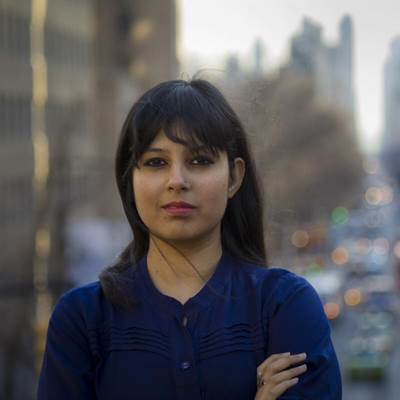Opinion Indian Women’s Press Corps: Free speech, journalism’s most important weapon, must be kept intact
The moment we allow ourselves to bow to the fear of reprimand by a higher authority or bow to the exterior forces of hooliganism – the very idea of a democracy disintegrates.
 A man arranges local newspapers fronting photos of U.S. President Barack Obama and Myanmar's State Counsellor and Foreign Minister Aung San Suu Kyi at his roadside shop, Thursday, Sept. 15, 2016, in Yangon, Myanmar. Myanmar economists and businessmen welcome President Barack Obama’s announcement that the U.S. will lift economic sanctions and restore long-lost trade benefits to the Southeast Asian country. (AP Photo/Thein Zaw)
A man arranges local newspapers fronting photos of U.S. President Barack Obama and Myanmar's State Counsellor and Foreign Minister Aung San Suu Kyi at his roadside shop, Thursday, Sept. 15, 2016, in Yangon, Myanmar. Myanmar economists and businessmen welcome President Barack Obama’s announcement that the U.S. will lift economic sanctions and restore long-lost trade benefits to the Southeast Asian country. (AP Photo/Thein Zaw) 
If the members of the Indian Women’s Press Corps. (IWPC) wish to hold conference gatherings and discussions, they have to sign a significant clause which promises that, “nothing will be said which will be anti-national, question the integrity of the country, amount to sedition or cause harm to the reputation to the club”.
The reasoning behind the clause’s insertion has been attributed to an incident in the past where last year, at a Press Club of India event, Delhi University faculty members S.A.R Geelani and Ali Javed supposedly encouraged the audience to chant ‘free Kashmir slogans’ (which were interpreted as ‘anti-national’). The incident led to the police getting involved and a case being filed. The clause was therefore included to prevent the spawning of similar incidents in the future.
In her defense, the President of the IWPC Sushma Ramachandran released a statement which stated that the IWPC, “needed to put this particular clause to protect our premises from misuse by vested interests. …it was introduced as a matter of abundant caution following the incident where questions were posed to the management of a club for acts about which they were not responsible. We in the IWPC are committed to safeguard the club’s interests.”
Keeping the integrity of free speech intact in a democracy however, is crucial. The moment it’s challenged, the moment we allow ourselves to bow to the fear of reprimand by a higher authority or in some cases, to the exterior forces of hooliganism – the very idea of a democracy disintegrates.
As journalists, we are entitled to nurturing, honing and voicing our opinions on issues which are crucial to the country. Many of these issues are bound to fall into the category of national interests, like the debate over Kashmir for instance. While there may be some journalists who might espouse nationalistic sentiments, there will be others who will oppose them. Heck, that’s the beauty of a healthy democracy. However, if the opinions of those who oppose are immediately relegated as “anti-national”, then we are submitting ourselves to narrow-minded thinking. We cannot be this myopic, especially in a democratic nation.
Of course, the President of the IWPC Sushma Ramachandran went ahead and defended the use of the phrase ‘anti-national’ in the clause. In an interview with The Wire, she said, “The term anti-national has become very politically loaded, almost as if what is ‘national’ has been appropriated by the BJP. That is not how we meant it. We are a professional journalists institution, not based on an ideology. For us, it’s not about being anti-government or pro-government. ‘Nationalist’ should not mean pro-BJP. Before the BJP came to power, these terms were not so loaded. Why should we allow one party to define what is national?”
Agreed. However, let’s steer away from BJP and talk about the overarching issue: must our opinions and thoughts be defined or curtailed, even if the term ‘anti-national’ in this case is apparently not associated with the central government or the nationalistic sentiments it’s known to propound? In a free nation, no barricades should be imposed on discussions. If we are told how to think, what to say, what words to use, then that defeats the very purpose of free speech. The voicing and ricocheting of myriad opinions in public gatherings must take place, primarily because it gives room for dialogue and encourages people to think about issues which are different from those they espouse.
As much as IWPC’s Ramachandran might argue or defend the clause, the fact of the matter is that IWPC is being cautious. In its fear to avoid being at the receiving end of a potential backlash, it has introduced the clause. By dissuading discussions which may raise “anti-national” opinions, the IWPC (ironically a journalists’ organization) is restricting itself – and by extension restricting its members – to think a certain way, a thinking that is advocated by right-wing activists.
In a way, this is reminiscent of the ‘thought police’ in George Orwell’s 1984, where the establishment controls not only the speech and actions of its civilians, but also their thoughts. In this case, the more people are dissuaded from voicing opinions which are seemingly anti-national, the more they are trained (by default) not to think about them. Thought, therefore, is controlled.
And that’s precisely what certain members of the IWPC are advocating. One hundred and eighty members have signed a letter and sent it to Ramachandran that reads: “This is against the ideals of free speech and expression… As founder members and former office bearers of the IWPC, we feel that the clause is totally unnecessary as it implicates the members and has the potential of subjecting them to harassment.” Hopefully, this might help the IWPC change its stance.






